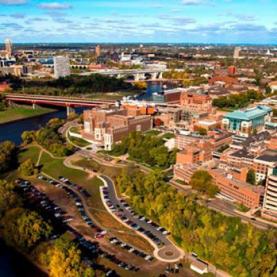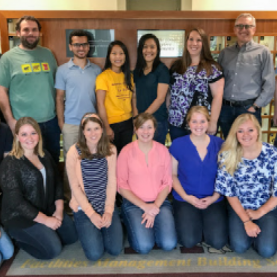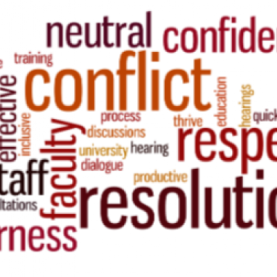Onboarding Postdocs you Advise
When a postdoc you advise first arrives to campus, you should:
- Arrange to meet with them soon after they arrive. You should also try to introduce them to colleagues and locate their lab, office, or other work areas relevant to their position.
- Ask the postdoc to meet with your units Human Resources Administrator to:
- complete relevant employment paperwork, remembering to bring identification such as their driver’s license, passport, or birth certificate;
- obtain their University of Minnesota (UMN) identification number and their Internet ID, which they’ll need for University e-mail and other information systems;
- complete forms needed to obtain keycard access to their building;
- inform them of any other department-specific procedures and offer to answer any questions they might have.
- Encourage the postdoc to enroll in the appropriate University benefits plans.
- For International Postdocs Only: all immigration-related issues for the University of Minnesota employees and students are handled by the International Students and Scholars Services (ISSS). Their office is located at:
ISSS
190 Hubert H. Humphrey School
301 19th Avenue South
Minneapolis, MN 55455
isss@umn.edu | (612) 626-7100 - Stress the importance of obtaining a U Card. Postdocs will retrieve their first U Card at the U Card Office in Coffman Memorial Union. They will need to bring with them official picture identification (passport, driver’s licence, et.c). For a full list, please visit the U Card Office website.
Best Practices in Postdoctoral Advising
Meaningful advising is critical to the success of postdoctoral scholars as they develop their original research ideas and achieve greater professional independence. Advising the next generation of scholars is also part of a faculty member’s responsibility to their field, and is central to the University’s mission of training future leaders across disciplines.
For suggestions on how to build and maintain healthy and productive relationships with the postdocs you advise, from Laying the Foundation for a Successful Advisor-Postdoc relationship to Cultivating an Atmosphere of Trust and Respect, click here.
Compact Between Postdoctoral Appointees and their Mentors (AAMC, 2017)
Implicit Bias Training for Search and Selection Processes
Departments across the U of M regularly participate in searches and selection processes. The University is committed to increasing diversity among its staff, faculty, postdocs, and students in admissions, promotions, scholarship decisions, and other selection processes. The presence of implicit bias in these processes can inhibit this goal. This workshop exposes participants to the breadth of implicit bias research and will help them recognize shortcuts resulting from unconscious or unexamined bias. Participants will learn promising practices and resources for addressing implicit bias in the context of search and selection processes. Register here.
- Tuesday, September 29, 2020, 1:00 PM - 2:30 PM, via Zoom
- Friday, October 9, 2020, 10:30 AM - 12:00 PM, via Zoom
- Wednesday, October 14, 2020, 2:30 PM - 4:00 PM, via Zoom
- Monday, November 16, 2020, 10:30 AM - 12:00 PM, via Zoom
- Wednesday, December 2, 2020, 12:00 PM - 1:30 PM, via Zoom
For more information about this workshop, contact Stef Jarvi at swilench@umn.edu or call 612-624-0594
Handling Conflict
Interpersonal conflict, while often unwelcome, is the inevitable byproduct of a dynamic, complex, resource-constrained workplace. Unaddressed conflict can substantially reduce the happiness, engagement and productivity of those affected - yet most lack any training in how to address conflict effectively. If conflicts arise in your work with postdocs, the Office of Conflict Resolution serves all system campuses and is a neutral, independent office. The Office’s services, with very limited exceptions, are entirely confidential. University policy prohibits retaliation against any employee for using the conflict resolution services of the OCR.
OCR services include:
- Consultations
- Facilitated Dialogues
- Mediation
- Formal Dispute Resolution through a Peer Hearing Process
Learn more about OCR services.
Excellence in Postdoctoral Advising Award
In recognition of the central role that postdoctoral advising plays at the University, the Office of Postdoctoral Initiatives recognizes two faculty members each year for Excellence in Postdoctoral Advising. Awardees receive $500 and are recognized during the Welcome Week event for postdocs during National Postdoctoral Appreciation Week.
Recipients of the 2021-2022 Awards for Excellence in Postdoctoral Advising:
Joseph Gaugler, PhD
Long-Term Care and Aging
School of Public Health
Michael McAlpine, PhD
Mechanical Engineering
College of Science and Engineering
Annie-Laurie McRee, DrPH
Pediatrics
Medical School
A call for nominations for the 2022 Award will be announced Spring semester 2022. See award criteria and nominating procedure for details on how to nominate an advisor.


